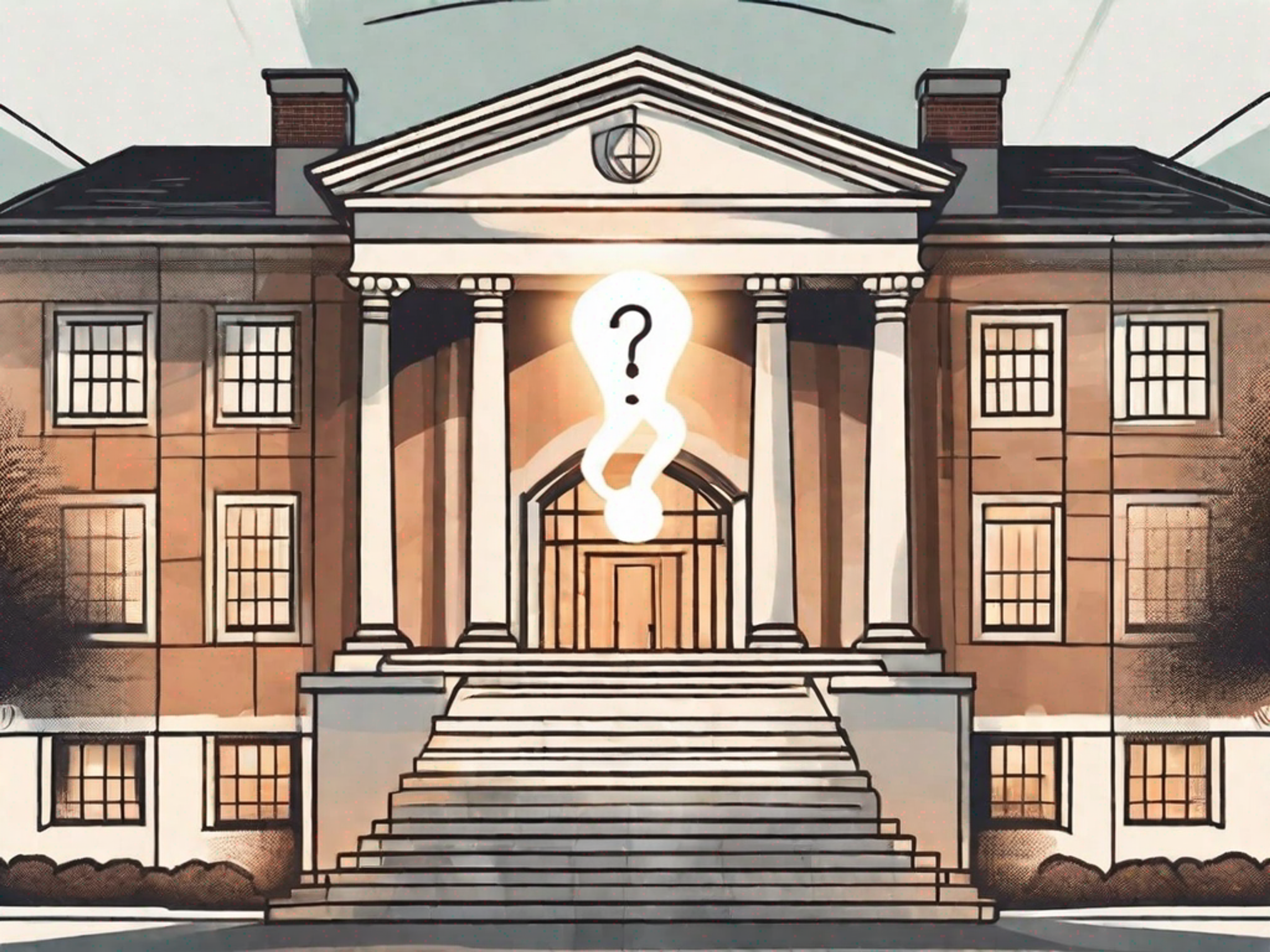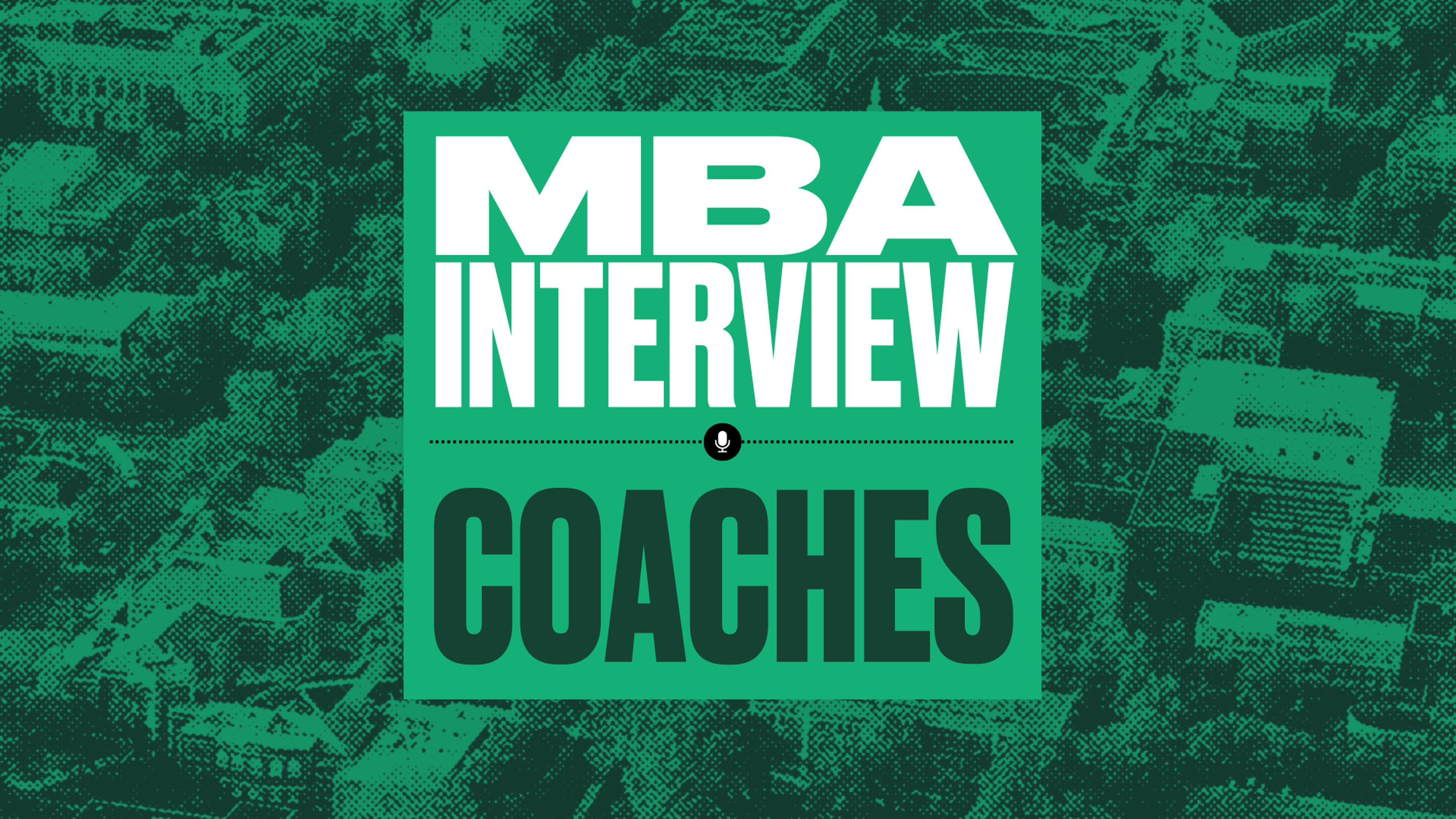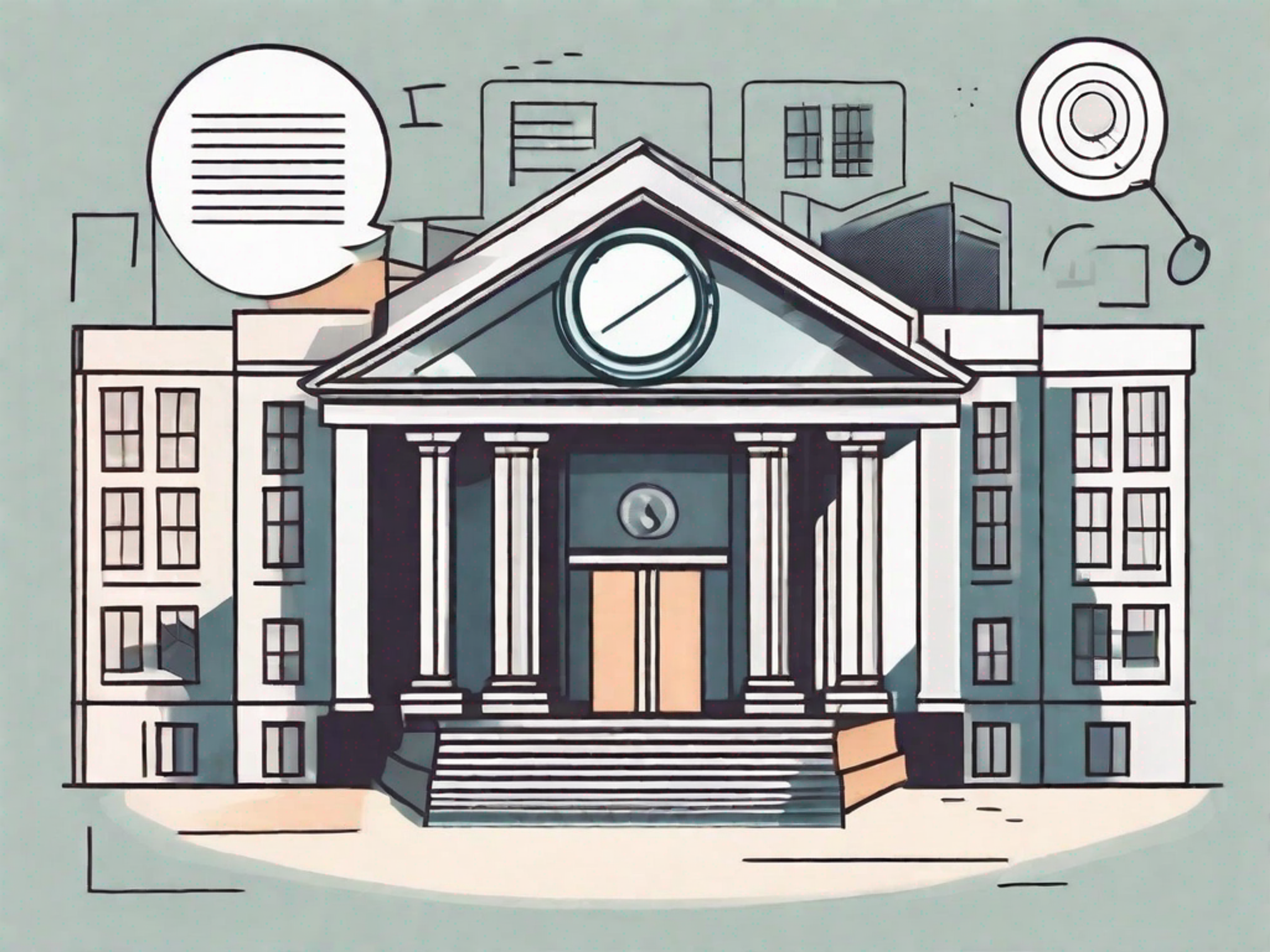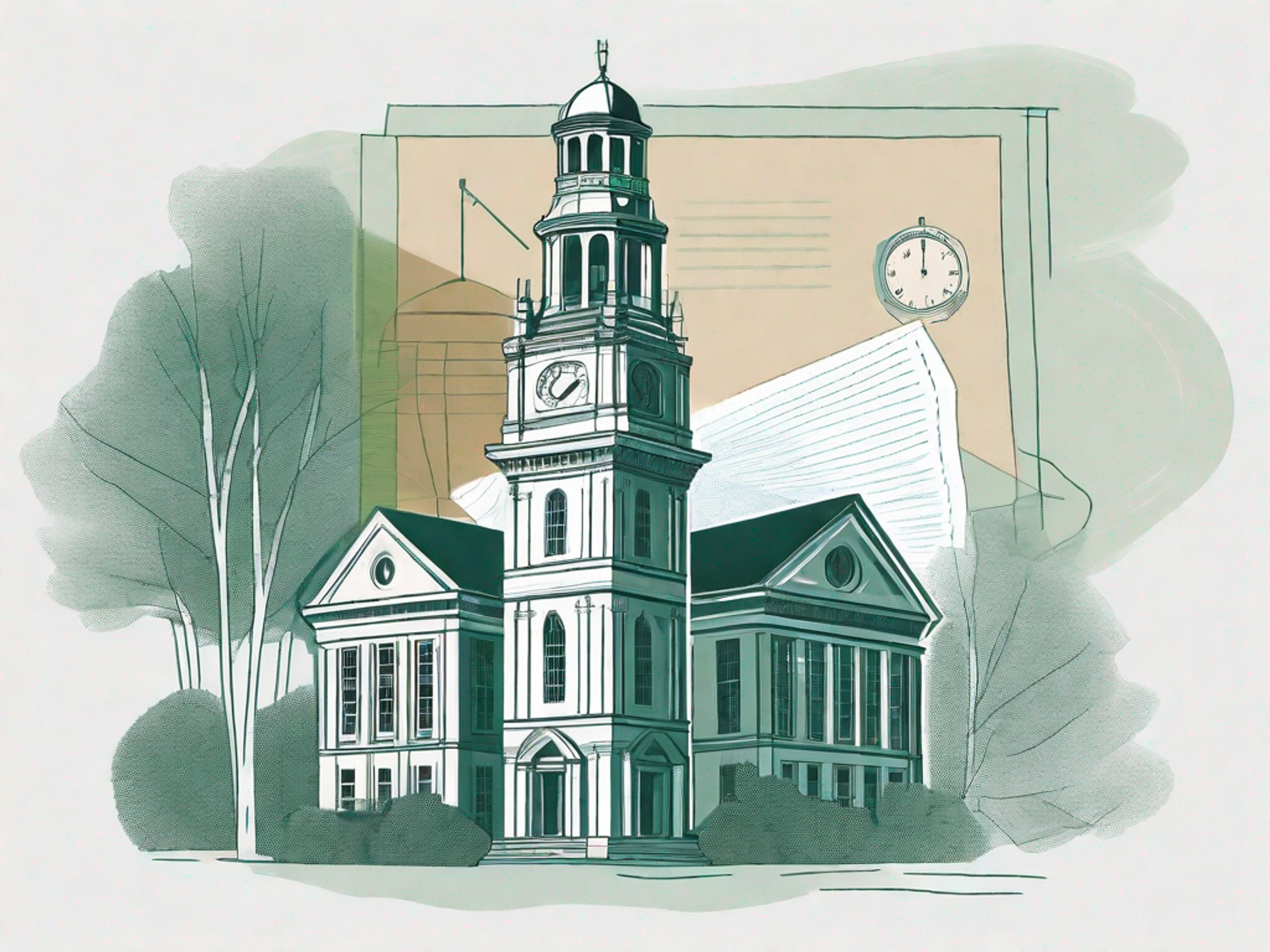M7 & Top 15 MBA Interview Masterclass: From Invite to Admit
How to Nail Your Dartmouth Tuck MBA Interview: Overview, Questions, and Tips
Looking to ace your Dartmouth Tuck MBA interview? This comprehensive article provides an overview of what to expect, common questions, and valuable tips to help you prepare and impress the admissions committee.
Posted June 13, 2025

Join a free event
Learn from top coaches and industry experts in live, interactive sessions you can join for free.
Table of Contents
The Dartmouth Tuck MBA interview is an important step in the admissions process, giving applicants the opportunity to showcase their qualifications and fit for the program. To help you prepare for this crucial interaction, this article provides a comprehensive guide on how to ace your Dartmouth Tuck MBA interview. From an overview of the interview process to a list of common questions and expert tips, we've got you covered.
Dartmouth Tuck MBA Application and the Role of Interview
Before delving into the specifics of the interview, it's important to understand the role it plays in the Dartmouth Tuck MBA application process. While your application materials, such as your essays, resume, and recommendations, provide insight into your achievements and capabilities, the interview offers the admissions committee a chance to assess your interpersonal skills, professionalism, and overall fit for the program.
During the interview, the committee will evaluate your ability to articulate your goals, your thought process, and how you can contribute to the Tuck community. It is an opportunity for them to gauge your communication skills, leadership potential, and compatibility with Tuck's values.
One aspect that the interview allows the admissions committee to explore is your ability to think critically and solve complex problems. They may present you with hypothetical scenarios or case studies to assess your analytical skills and how you approach challenges. This gives them a deeper understanding of your problem-solving abilities and how you can apply them in a business environment.
Furthermore, the interview provides an opportunity for the committee to assess your fit with the Tuck community. They are looking for candidates who not only possess the necessary skills and qualifications but also align with Tuck's collaborative and supportive culture. Through the interview, they can gauge your ability to work well in teams, your willingness to contribute to the success of others, and your overall interpersonal skills.
Additionally, the interview allows you to showcase your passion for your chosen career path and your motivation for pursuing an MBA at Tuck. The committee is interested in understanding your long-term goals and how an MBA from Tuck can help you achieve them. They want to see that you have a clear vision for your future and that you have done your research on how Tuck's program can support your aspirations.
Moreover, the interview is an opportunity for you to ask questions and learn more about Tuck. It's not only a chance for the committee to evaluate you, but also for you to assess whether Tuck is the right fit for you. Use this time to inquire about specific programs, resources, and opportunities that align with your interests and goals. This will not only demonstrate your genuine interest in the program but also help you make an informed decision if you receive an offer of admission.
In conclusion, the interview is a crucial component of the Dartmouth Tuck MBA application process. It allows the admissions committee to assess your interpersonal skills, problem-solving abilities, fit with the Tuck community, and passion for your chosen career path. It's not only an opportunity for them to evaluate you, but also for you to learn more about Tuck and determine if it aligns with your aspirations. So, prepare well, showcase your strengths, and make the most of this chance to stand out in the competitive MBA application process.
50 Dartmouth Tuck Common Interview Questions
Preparing for the Dartmouth Tuck MBA interview requires familiarizing yourself with the types of questions typically asked. While it is impossible to predict the exact questions you will be asked, below is a list of 50 common interview questions that may give you an idea of what to expect:
- Why do you want to pursue an MBA at Dartmouth Tuck?
- Tell me about yourself and your background.
- Describe a situation where you faced a leadership challenge and how you resolved it.
- What is your biggest professional accomplishment and why?
- Discuss a time when you had to work in a team with conflicting personalities.
- How do you handle failure and what have you learned from it?
- What are your short-term and long-term career goals?
- Describe a time when you had to make a difficult decision and how you approached it.
- How do you prioritize your tasks and manage your time effectively?
- Tell me about a time when you had to persuade someone to see things from your perspective.
- Discuss a situation where you had to adapt to a new and challenging environment.
- What is your leadership style and how do you motivate others?
- Describe a time when you had to resolve a conflict within a team.
- How do you handle stress and pressure in the workplace?
- Tell me about a time when you had to take a calculated risk.
- Discuss a situation where you had to manage multiple projects simultaneously.
- What steps do you take to ensure the success of a project?
- Describe a time when you had to deal with a difficult colleague or client.
- How do you stay updated with the latest industry trends and developments?
- Tell me about a time when you had to work with a diverse group of people.
- Discuss a situation where you had to overcome a major obstacle to achieve a goal.
- What is your approach to building and maintaining professional relationships?
- Describe a time when you had to manage a tight deadline.
- How do you handle feedback and criticism?
- Tell me about a time when you had to negotiate a difficult situation.
- Discuss a situation where you had to make a decision with limited information.
- What steps do you take to ensure effective communication within a team?
- Describe a time when you had to innovate and think outside the box.
- How do you stay motivated and maintain a positive attitude?
- Tell me about a time when you had to manage a conflict between team members.
- Discuss a situation where you had to meet a challenging goal under pressure.
- What is your approach to networking and building professional connections?
- Describe a time when you had to handle a dissatisfied customer or client.
- How do you stay organized and prioritize your tasks in a fast-paced environment?
- Tell me about a time when you had to lead a team through a difficult situation.
- Discuss a situation where you had to manage a budget and allocate resources.
- What steps do you take to ensure the quality of your work?
- Describe a time when you had to deal with a challenging team member.
- How do you stay updated with the latest business news and trends?
- Tell me about a time when you had to handle a high-pressure situation.
- Discuss a situation where you had to convince others to adopt a new idea or strategy.
- What is your approach to conflict resolution?
- Describe a time when you had to manage a project with limited resources.
- How do you handle ambiguity and uncertainty in the workplace?
- Tell me about a time when you had to collaborate with a difficult team member.
- Discuss a situation where you had to meet a tight deadline with limited time.
- What steps do you take to ensure effective teamwork and collaboration?
- Describe a time when you had to adapt to a change in project scope.
- How do you stay focused and maintain attention to detail?
- Tell me about a time when you had to resolve a conflict between stakeholders.
- Discuss a situation where you had to manage competing priorities.
- What is your approach to decision-making under pressure?
- Describe a time when you had to deal with a difficult supervisor or manager.
- How do you stay motivated and inspire others in challenging situations?
Remember, the purpose of these questions is not to catch you off guard, but rather to assess how you think, problem-solve, and communicate your ideas. Take the time to reflect on these questions and practice your responses beforehand to increase your confidence on interview day.
Preparing for your Dartmouth Tuck MBA interview is an important step towards achieving your academic and career goals. The interview process provides an opportunity for the admissions committee to get to know you better and evaluate your fit for the program. It is crucial to be well-prepared and confident during the interview to make a positive impression.
When answering the interview questions, it is important to provide specific examples from your personal and professional experiences. This will help demonstrate your skills, abilities, and potential as a future MBA student at Dartmouth Tuck. Remember to highlight your achievements, leadership qualities, problem-solving skills, and ability to work in teams.
In addition to preparing your responses to the interview questions, it is also important to research and familiarize yourself with the Dartmouth Tuck MBA program. Gain a thorough understanding of the curriculum, faculty, and resources available to students. This will allow you to tailor your answers and demonstrate your genuine interest in the program.
During the interview, it is essential to maintain a professional and confident demeanor. Dress appropriately, arrive on time, and greet the interviewer with a firm handshake and a smile. Make sure to listen carefully to the questions and take a moment to gather your thoughts before responding. Speak clearly and concisely, and provide examples that showcase your abilities and experiences.
After the interview, take the time to send a thank-you note or email to the interviewer. Express your gratitude for the opportunity to interview and reiterate your interest in the Dartmouth Tuck MBA program. This small gesture can leave a lasting impression and demonstrate your professionalism and enthusiasm.
4 Expert Tips for the Dartmouth Tuck Interview
Preparing for a successful Dartmouth Tuck MBA interview involves more than merely rehearsing answers to potential questions. Here is a list of expert tips to help you leave a lasting impression:
- Research the program thoroughly to demonstrate your genuine interest.
- Practice active listening and engage in a meaningful conversation with your interviewer.
- Be prepared to discuss your short-term and long-term goals, and how an MBA from Tuck will help you achieve them.
- Showcase your ability to contribute to the Tuck community by highlighting relevant experiences.
By implementing these tips, you can increase your chances of making a compelling case for your candidacy and standing out from other applicants.
General MBA Interview Tips: How to Stand Out
While the tips mentioned earlier are tailored specifically for the Dartmouth Tuck MBA interview, it is crucial to keep in mind some general best practices that can help you stand out in any MBA interview:
- Practice good posture, maintain eye contact, and exhibit confident body language.
- Use storytelling to make your responses more memorable and engaging.
- Ask thoughtful questions about the program and its resources.
- Send a thank-you note or email to your interviewer to express your gratitude for their time and reiterate your interest.
Adopting these general strategies will enhance your overall interview performance and leave a positive lasting impression on the admissions committee.
10 Dartmouth Tuck MBA Interview FAQs
Finally, let's address some frequently asked questions about the Dartmouth Tuck MBA interview:
1. What should I expect in a Dartmouth Tuck MBA interview?
At Dartmouth Tuck, interviews are conversational and designed to assess your fit with the program. Expect questions about your background, experiences, and motivations for pursuing an MBA. Behavioral questions exploring your leadership and teamwork skills are common.
2. How can I prepare for the Dartmouth Tuck MBA interview?
Research the school thoroughly, understand its culture, and be ready to articulate why Tuck is the right fit for you. Practice answering common MBA interview questions and consider participating in mock interviews to refine your responses.
3. What are some specific questions that might be asked in a Dartmouth Tuck MBA interview?
Be prepared for questions like:
- Why do you want to pursue an MBA at Tuck?
- Can you share an example of a challenging team project you've worked on?
- How do you handle ambiguity and uncertainty?
4. How long does the Dartmouth Tuck MBA interview usually last?
Typically, interviews last around 30 to 45 minutes. Be concise in your responses while providing enough detail to showcase your experiences and qualities.
5. Are there any unique aspects of the Dartmouth Tuck MBA interview process?
Dartmouth Tuck values a strong sense of community. Expect questions exploring how you contribute to a collaborative environment and how you align with Tuck's commitment to fostering a close-knit community.
6. What tips can you offer to make a lasting impression during the interview?
Showcase your genuine interest in Tuck by highlighting specific programs, professors, or aspects of the community that resonate with you. Demonstrate self-awareness, and be ready to discuss both your successes and areas of growth.
7. Is it appropriate to ask questions during the Dartmouth Tuck MBA interview?
Yes. Asking thoughtful questions signals your genuine interest. Prepare questions about the program, campus life, or alumni experiences to demonstrate your engagement with the Tuck community.
8. How important is the Dartmouth Tuck MBA interview in the admissions process?
The interview is a crucial component of the admissions process at Tuck. It provides the admissions committee with a holistic view of your personality, communication skills, and fit with the Tuck community.
9. Should I bring any materials to the Dartmouth Tuck MBA interview?
While it's not necessary, having a few key points or examples written down can help you stay focused and ensure you cover all the essential information during the interview.
10. What should I do after the Dartmouth Tuck MBA interview?
Send a thank-you email within 24 hours expressing gratitude for the opportunity and reiterating your enthusiasm for Tuck. Use this opportunity to briefly reinforce key points from the interview and showcase your continued interest in the program.
It is essential to familiarize yourself with the interview logistics to ensure you are adequately prepared for the specific format and expectations of the Dartmouth Tuck MBA interview.
Conclusion
The interview is a critical milestone as you embark on your journey towards a Dartmouth Tuck MBA. By thoroughly understanding the application process, preparing for common interview questions, implementing expert tips, and utilizing general MBA interview strategies, you can position yourself for success. Remember, the interview is an opportunity to demonstrate your fit for Dartmouth Tuck and showcase the unique qualities that make you an ideal candidate. Best of luck with your Dartmouth Tuck MBA interview!






























